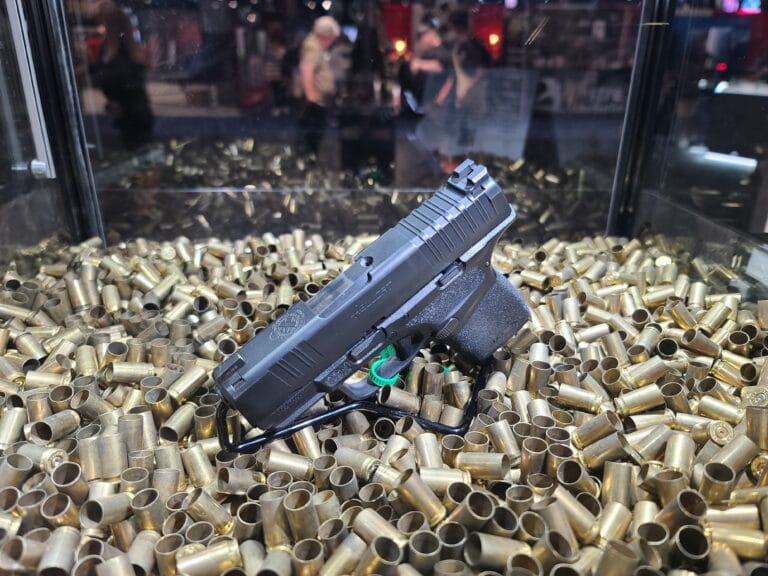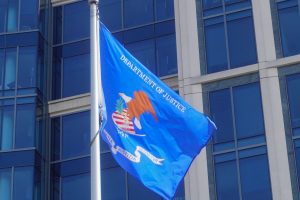The Show-Me State’s attempt to block federal enforcement of gun laws was handed a decisive loss in court on Tuesday.
U.S. District Judge Brian C. Wimes, an Obama appointee, ruled that Missouri’s “Second Amendment Preservation Act” (SAPA) is unconstitutional. The law sought to prevent state officials from cooperating with federal officials to enforce certain federal gun laws. The judge decided the constitution’s supremacy clause preempts Missouri’s law.
“SAPA’s practical effects are counterintuitive to its stated purpose,” Judge Wimes wrote in his opinion. “While purporting to protect citizens, SAPA exposes citizens to greater harm by interfering with the Federal Government’s ability to enforce lawfully enacted firearms regulations designed by Congress for the purpose of protecting citizens within the limits of the Constitution.”
The ruling sketches out a potential limit for state and local “Second Amendment sanctuary” policies. Gun-rights advocates fed up with the threat of gun laws from higher levels of government have increasingly turned to passing laws restricting local officials from enforcing disfavored gun-control laws, though most have focused on potential future sales bans or confiscation efforts specifically. Tuesday’s ruling and a similar Oregon appeals court ruling last month show judges are starting to push back on some sanctuary policies.
Missouri’s law, which featured stiff penalties for law enforcement officials who fail to comply, was one of the most expansive examples of a sanctuary-style law when it was signed by Governor Mike Parson (R.) in 2021. The law stipulated that “all federal acts, laws, executive orders, administrative orders, court orders, rules, and regulations, whether past, present, or future, that infringe on the people’s right to keep and bear arms as guaranteed by the Second Amendment…must be invalid in this state.”
It offered a broad definition of potential infringements including any gun tax not applied to all goods or services if it could reasonably create a “chilling effect” on gun purchases, any gun registration, and any sales ban or confiscation effort that affects “law-abiding citizens”–which the act defined as anyone not prohibited from owning guns under Missouri law.
That definition seemed to encompass parts of several federal gun laws already on the books, such as the National Firearms Act and Gun Control Act. Additionally, SAPA created a $50,000 civil penalty for any state or local official who tried to enforce or assist in enforcing any law declared “invalid” by the state. It also allowed the penalty to be enforced through suits brought by private individuals.
SAPA’s passage drew immediate fire from the Biden Administration’s Department of Justice (DOJ), which helped support a lawsuit that attempted to block the law before it went into effect. When that effort failed, the DOJ filed its own federal lawsuit in February last year. U.S. Attorney General Merrick Garland argued that the law interfered with the ability of law enforcement to prevent violent crime. He claimed SAPA had resulted in police officers pulling back from enforcing gun crimes out of fear of a lawsuit.
The law also drew criticism from local law enforcement associations who objected to the civil penalties.
Judge Wimes agreed with Garland and the local law enforcement officials.
“[SAPA] provides that all federal laws and acts that infringe on the people’s right to keep and bear arms under the Second Amendment are invalid in Missouri, are not recognized by Missouri, and are rejected by Missouri,” he wrote. “At best, this statute causes confusion among state law enforcement officials who are deputized for federal task force operations, and at worst, is unconstitutional on its face. While Missouri cannot be compelled to assist in the enforcement of federal regulations within the state, it may not regulate federal law enforcement or otherwise interfere with its operations.”
Missouri Attorney General Andrew Bailey (R.) criticized the District Court’s decision.
“The Second Amendment is what makes the rest of the amendments possible,” Bailey told The Reload. “If the state legislature wants to expand upon the foundational rights codified in the Second Amendment, they have the authority to do that. But SAPA is also about the Tenth Amendment. It’s about federalism and individual liberty.”
He said the state would appeal the decision and expects a different outcome in the higher court.
“As Attorney General, I will protect the Constitution, which includes defending Missourians’ fundamental right to bear arms,” he said. “We are prepared to defend this statute to the highest court, and we anticipate a better result at the Eighth Circuit.”
Gun-control advocates, who have long opposed “Second Amendment Sanctuary” laws, celebrated Tuesday’s decision. Everytown for Gun Safety said it hopes the decision will send a message to other states considering similar legislation.
“The court has spoken, and the verdict was clear: State lawmakers have no business undermining federal measures to keep Americans safe from gun violence,” John Feinblatt, Everytown’s president, said in a statement. “Weakening federal gun laws is good for criminals, terrible for law enforcement, and a gross violation of the Constitution, so any states planning to follow Missouri’s lead should study this decision closely.”
The Department of Justice did not respond to a request for comment on this latest ruling.







Only Members can view comments. Become a member today to join the conversation.